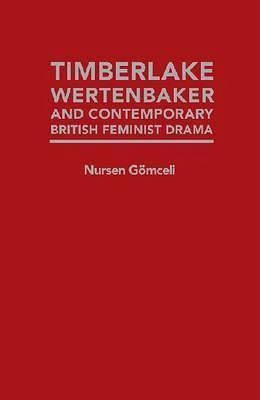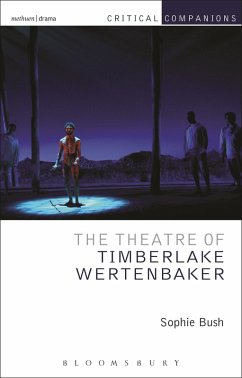Nicht lieferbar

Timberlake Wertenbaker and Contemporary British Feminist Drama: Feminism(s) Illustrated in Timberlake Wertenbaker's "new Anatomies" (1981), "the Grace
Versandkostenfrei!
Nicht lieferbar
This work, which aims at exploring Timberlake Wertenbaker's feminist drama, provides an in-depth analysis of the playwright's major feminist plays "New Anatomies" (1981), "The Grace of Mary Traverse" (1985), "The Love of the Nightingale" (1988), and "The Break of Day" (1995), with an extensive research on the development of feminism, contemporary British feminist theatre(s), feminist theatre companies, and British feminist drama. Analysing the plays thoroughly within the frame of feminist critical theory and thus demonstrating to what extent they reveal different types of feminism such as libe...
This work, which aims at exploring Timberlake Wertenbaker's feminist drama, provides an in-depth analysis of the playwright's major feminist plays "New Anatomies" (1981), "The Grace of Mary Traverse" (1985), "The Love of the Nightingale" (1988), and "The Break of Day" (1995), with an extensive research on the development of feminism, contemporary British feminist theatre(s), feminist theatre companies, and British feminist drama. Analysing the plays thoroughly within the frame of feminist critical theory and thus demonstrating to what extent they reveal different types of feminism such as liberal, radical and socialist feminist positions and hence represent different types of feminist drama and theatre, the work not only provides a detailed research on British feminist drama and feminist theatres but also makes a valuable contribution to the existing account on Timberlake Wertenbaker and her feminist drama. The study, which presents a comprehensive Introduction, consists of four chapters, each of which is devoted to the discussion and analysis of one play. Accordingly, Chapter I analyses New Anatomies as representative of socialist feminist drama. Chapter II deals with The Grace of Mary Traverse, establishing it is a blend of socialist feminist and radical feminist drama. The third chapter focuses on The Love of the Nightingale as a striking example of radical feminist drama and theatre, and Chapter IV provides a close analysis of The Break of Day, displaying it as a play representative of socialist feminist drama. Revealing thus also the feminist aspect of the playwright, who is widely known for her refusal to associate herself and her work with feminism, Dr. Nursen Gömceli in this work demonstrates that Timberlake Wertenbaker has indeed written plays that can be usefully and critically analysed within the frame of feminist theatre and drama.













